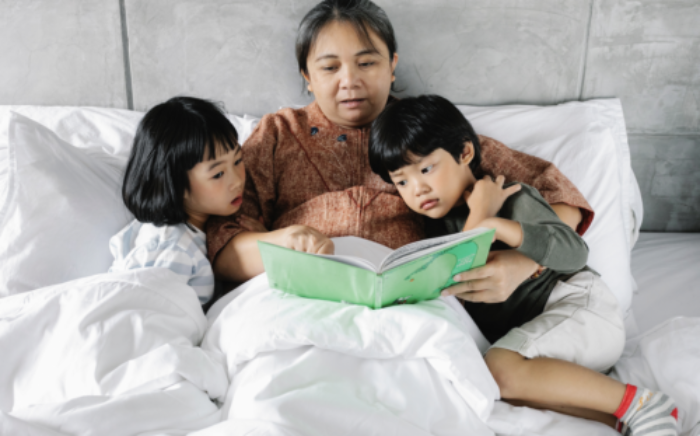The Best Laid Plans…
As a parent, you make every effort to care for your child and keep them safe. You may be attuned to their transient needs and fluctuations in emotion. A parent-child relationship is extremely powerful, yet for an anxious child, too much support can actually backfire at times and serve as a crutch for the child. When we continually rescue an anxious child from scary situations and allow the child to avoid or escape, we inadvertently reinforce the child’s avoidance, making his or her fear stronger. By saving a child, it is affirming to them, “yes, this is scary, and it is worth avoiding.” This can happen in a broad variety of circumstances: allowing a child to skip a birthday party due to fear of social judgment, speaking for one’s child when a waiter asks a question, or sleeping in a child’s bed because the child is fearful of being alone. When our wish to comfort our anxious child allows them to avoid something scary, it prevents the child from getting used to the stimulus (or habituating) and makes the child more likely to avoid in the future. These overly supportive parent behaviors for anxious children are often referred to as “accommodation” in research literature. We want to consider:
1) What is a thoughtful accommodation versus an enabling accommodation?
2) What is a developmentally appropriate accommodation (i.e. is your child 3 years old and fearful of the dark or is your child 8 years old and fearful of separation)?
3) How can you maintain your values, family plans, and routines while still supporting your child?
Accommodating Causes Parent Distress, Too!
It’s not all about the kids! Research has found associations between the extent that a parent accommodates for their child and the parent’s own personal well being; accommodations can impact a parent’s time, social relationships, and self-development. Another study has found that parent accommodations are associated with increased feelings of hostility and psychological challenges in general. It is helpful to keep this in mind the next time your heart strings are tugged by your anxious child – you are resisting the urge to help them in certain scenarios for not only their growth and well being, but also your own. It is beneficial to think of the ways in which your child’s struggles are “taking over” your life—these are the areas in which you may be accommodating and altering your preferred lifestyle and routines.
What to do instead?
If you are currently thinking – “Shoot, I do this” –great job reflecting and recognizing this! Being a caring and empathetic parent is nothing to apologize for, and it is never too late for accommodations to be removed. But how do we go about this? There are plenty of resources on accommodation and tips on how to gradually reduce these supports and help your child become exposed to the situations they fear. Let’s brainstorm a few example scenarios with different types of anxious children:
For the child who fears speaking with new people…
After a long awkward pause, it can be tempting to answer for our children. However, this is removing the child’s need to face their anxiety and to be exposed to the challenging situation. Instead, you may encourage the individual to ask again, for example: “Sorry, I don’t think s/he heard you, you can ask again.” If the child still doesn’t answer, you as parent can repeat the question to the child directly. If they answer you (even if not directed to the stranger), reflecting what they said will make the child feel heard and remind the child that both you and the new stranger have heard them share. Praising this behavior will increase it in the future.
For the child who fears going to school…
Morning tantrums and crying would make any parent want to let their child stay home. However this is a dangerous road to go down and should be fiercely avoided. Allowing your child to stay home will teach them: 1) When I cry and tantrum, I get my way, 2) School is worth avoiding, and 3) I am in control of whether I go to school in the future. These, of course, are not messages we want to send! Children’s increasing autonomy can be encouraged and praised, however the child is not in charge. It is important to understand the function of the child’s avoidance. Is the child struggling academically, socially, or emotionally? Assume that there is meaning in your child’s words and help them to feel validated. Parents may support in problem-solving, of course, however staying home from school is rarely the solution.
For the child who fears sleeping alone…
It can be cozy to share a bed with a child and to know that we can make them feel safe and comforted. There is certainly a time and place for cuddling! However, if a child is fearful of the dark or being alone, co-sleeping may be affirming these fears and strengthening avoidance of being alone at night. Parents can gradually reduce time with the child at night and help them build distress tolerance to the situation—for example, by first shortening the time in the room, then only remaining in the doorway for a short period, then in the hallway, and ultimately separating fully after the bedtime routine. It is beneficial to praise the child for their brave practice throughout each step, and make connections for why this is important for them to achieve (e.g. increased autonomy, social participation in sleepovers, etc.).
The urge to protect and support your child can be overwhelming. Harnessing this love and passion appropriately allows you and your child to feel most empowered. It is useful to reflect on how small changes to your routines and lifestyle may improve parental and child growth, confidence, and well-being.
Lebowitz, E. R. (2018). Addressing Family Accommodation in Childhood Obsessive-Compulsive Disorder. In The Clinician’s Guide to Cognitive-Behavioral Therapy for Childhood Obsessive-compulsive Disorder (pp. 243-261).
Peris, T. S., Bergman, R. L., Langley, A., Chang, S., McCracken, J. T., & Piacentini, J. (2008). Correlates of accommodation of pediatric obsessive-compulsive disorder: parent, child, and family characteristics. Journal of the American Academy of Child and Adolescent Psychiatry, 47(10), 1173–1181. doi:doi:10.1097/CHI.0b013e3181825a9
Wu, M. S., Hamblin, R., Nadeau, J., Simmons, J., Smith, A., Wilson, M., … Storch, E. A. (2018). Quality of life and burden in caregivers of youth with obsessive-compulsive disorder presenting for intensive treatment. Comprehensive Psychiatry, 80, 46–56. doi: 10.1016/j.comppsych.2017.08.005









